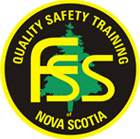Calling 911 – Simple Rules to Follow
Stay Calm: – It’s important to retain your composure. Having to repeat your information because you are incoherent will only delay the response.
Know your Location: – Be prepared to give a precise location of where the incident is: Street address, specific room etc. In most cases the 911 system will know where you are but exact details will be helpful, especially if calling from a cell phone:
Let the 911 operator guide the conversation: There is a “best practice procedure” to be followed and the 911 operator has specific questions to ask in an appropriate order. It may appear frustrating, but it is a proven system…be “patient” and reply clearly and calmly to all questions being asked. If your situation is a case of assault or impending threat, the operator will be able to ask you questions requiring a simple “Yes” or “No” reply.
What if you reach a recording: – This is not a joke. It may happen that you reach a message asking you to stay on the line as operators are busy. STAY ON THE LINE…you will be transferred ASAP. If you hear nothing or a recording says your call cannot be completed as dialed…hang up and try again.
Follow ALL directions: – Listen carefully for understanding of any directions given…if in doubt, ask for clarification.
Keep your eyes open: – Be alert for any changes in the situation, condition of victim, impending dangers, etc.
Get additional help: – If you are required to provide treatment to the victim, get someone to handle the phone and provide information back and forth.
MOST IMPORTANTLY: DO NOT HANGUP THE PHONE: – Unless directed to do so by the 911 operator. If you are in danger just put the phone down to keep the line open and emergency response will be sent.
One final note regarding 911: You are encouraged NOT to program 911 into your automatic dialer. Firstly, the number is easy to remember and doesn’t need to be stored. Secondly, if it is accidently dialed, emergency response will be sent, even if there is no one speaking.
